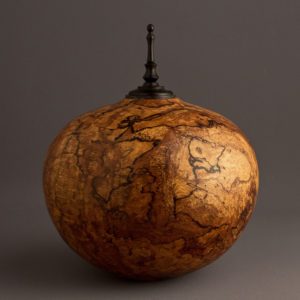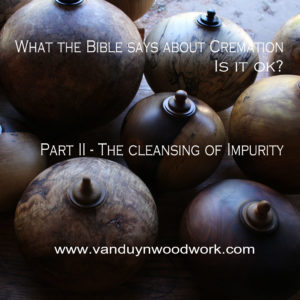Are you considering cremation and are wondering what does the bible say about keeping ashes? I have been turning custom cremation vessels for many years now. I thought it was time to get really clear on what the bible has to say about cremation. Specifically, what does the bible say about keeping ashes? Are you educating yourself on the logistics of cremation? I am glad that you made it here. I hope that the information that I have found will help you answer some of your questions.



 Could it be that helping the man in his condition would have cause the Levite to become unclean? The proximity to the man appears too much of a risk. I suspect the reality of the man’s condition is far worse than depicted. (
Could it be that helping the man in his condition would have cause the Levite to become unclean? The proximity to the man appears too much of a risk. I suspect the reality of the man’s condition is far worse than depicted. (